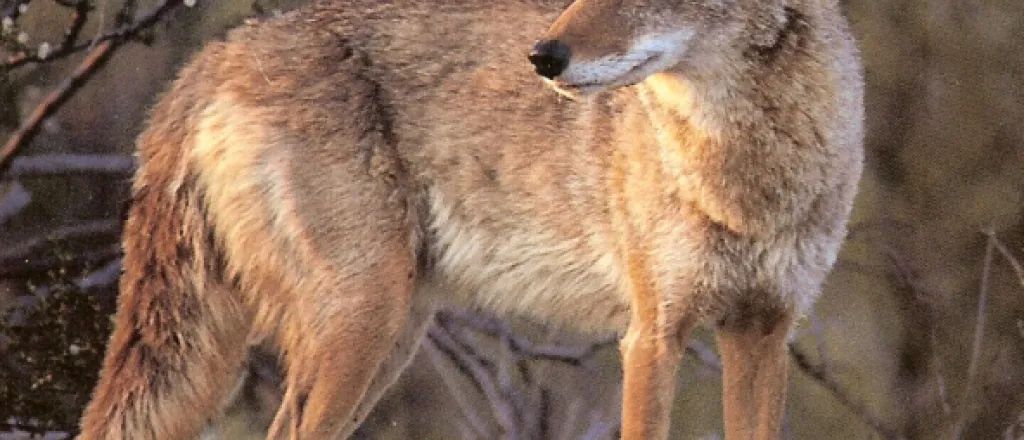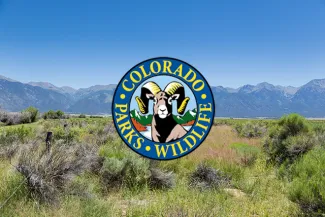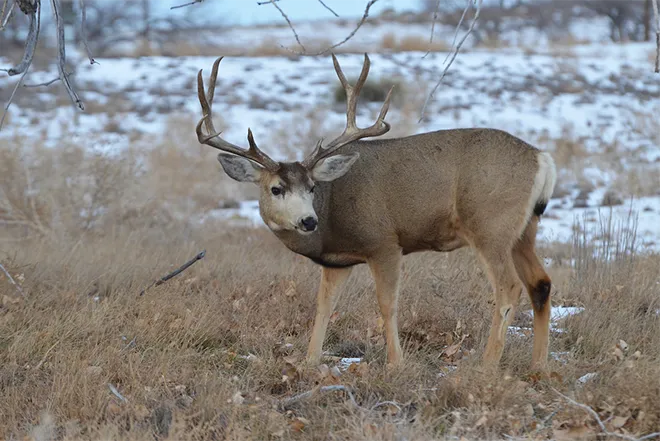
Colorado to kill coyotes it finds near northern Colorado Springs
Coyote - Colorado Parks and Wildlife
Colorado Parks and Wildlife officers and partner agencies plan to kill coyotes they find in northern Colorado Springs as they pursue a coyote that attacked a four-year-old girl on Thanksgiving Day.
Since identifying the exact coyote who attacked the little girl is impossible, CPW and its partners plan to "lethally remove" any coyote it finds in the vicinity of the attack, according to a CPW press release.
The attack happened in the late afternoon on Thanksgiving in a neighborhood east of Monument Creek and Interstate 25. The area is near the Air Force Academy.
"Coyotes live across Colorado, adapting well to urban areas where they find shelter and easy meals," the release said. "Like most wildlife, coyotes are naturally afraid of humans, but they can lose that fear and become bold and aggressive if they are protecting their young, being fed, or are sick."

Colorado Parks and Wildlife
Witnesses say the coyote attacked the girl when she and another child approached it. The coyote was crouched behind a tree, and the children thought it was a dog.
The coyote lunged at the girl and bit the back of her head, causing serious injuries that required an overnight stay at a local hospital.
"This could have been much worse – a tragedy – if not for the quick action of the child's uncle to stop the attack, rescue his niece, and scare the coyote off," Tim Kroening, CPW's Area Wildlife Manager for the Pikes Peak region, said in the release.
CPW found out about the attack the following day once the girl left the hospital. CPW responded by organizing a pursuit of coyotes in the area.
"As CPW officers pursue the coyote, the agency urges everyone to familiarize themselves with important tips for keeping coyotes wild and afraid of humans and to protect their children and pets," the release said. "CPW offers a variety of hazing strategies and safety information on its website."
In the meantime, Kroening urged people to not feed coyotes.
"Coyotes are omnivores and will eat anything, even tipping over garbage cans like bears do," Kroening said in the release. "Typically when they get aggressive, it's in the spring, and they are protecting a nearby den where they have pups. Or it's because someone in the area is feeding them. People nearby might be leaving pet food outdoors or actively feeding by throwing them scraps of food. That's illegal, and it's a problem in urban areas."
Once CPW kills the coyotes it finds, it will then send their carcasses to a health lab to examine them for human DNA and to test them for diseases like rabies.
"We don't know yet what brought the coyote into the yard with this child," Kroening said in the release. "But it's an important reminder to everyone to be alert and haze wild animals away from their homes and neighborhoods. That goes for deer, foxes, bobcats, bears, and other animals. Don't let them get comfortable around people."
Kroening urged those who see coyotes to throw rocks at them and to yell at them.
"And if you notice aggressive behavior, call us immediately," he said in the release. "We'll try to remove any aggressive animals."
Coyotes primarily eat small animals like mice, rabbits, squirrels, fish, and birds. However, they eat berries, vegetables, insects, and food scraps.
"We've had cases of them attacking small dogs and cats as food," Kroening said in the release. "And they can view pets as potential competitors for food."
Kroening thinks the operation will take several days and requests the public's cooperation and understanding.
















